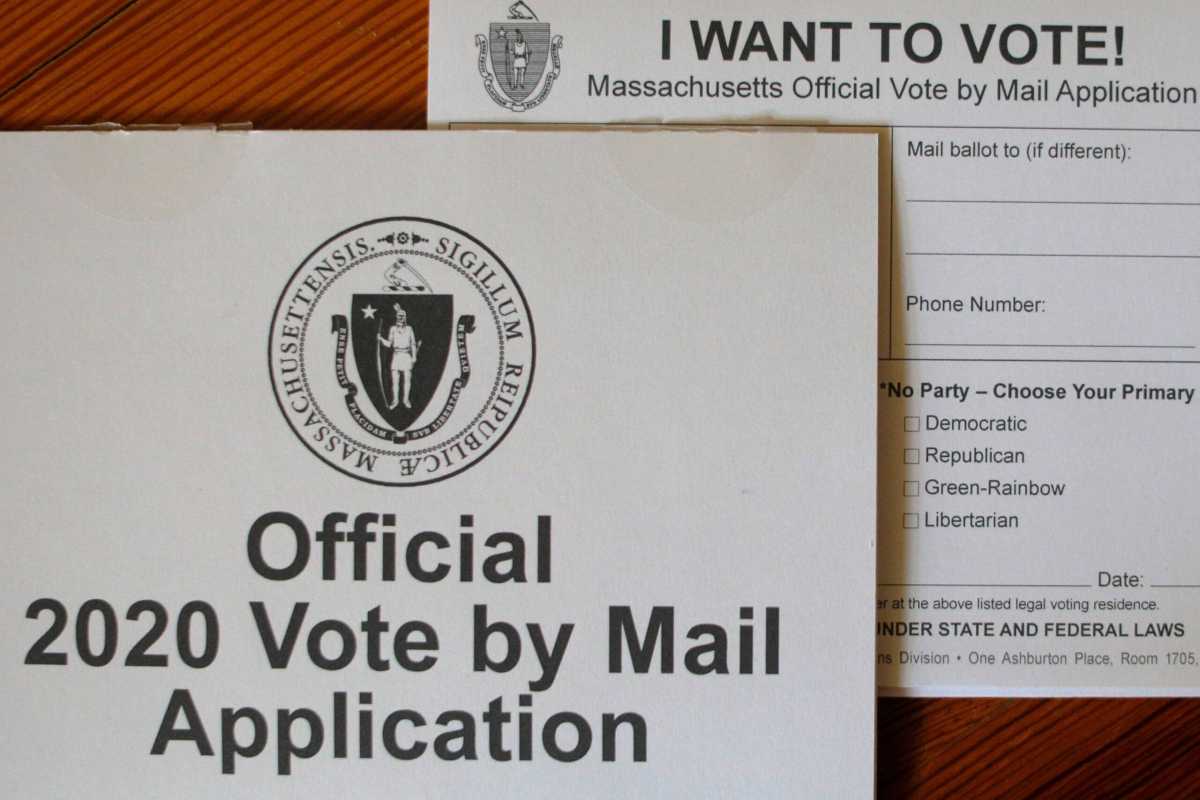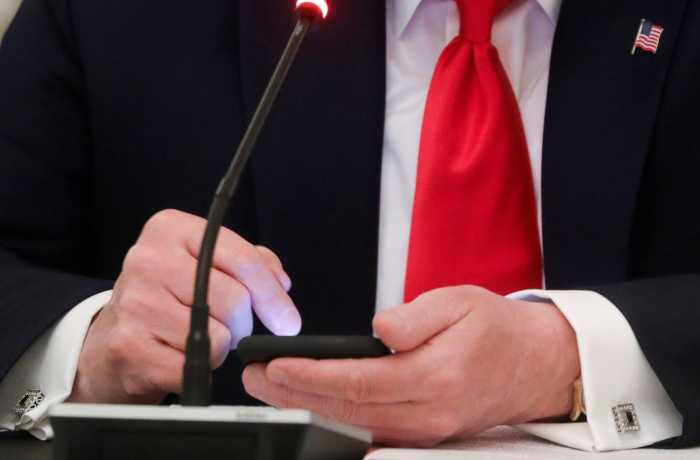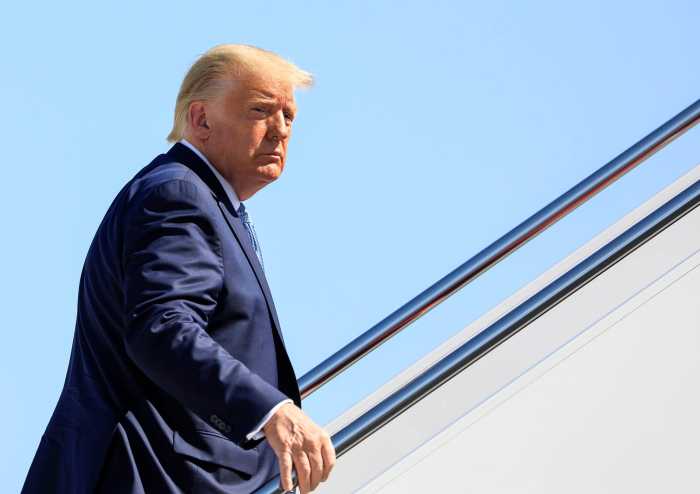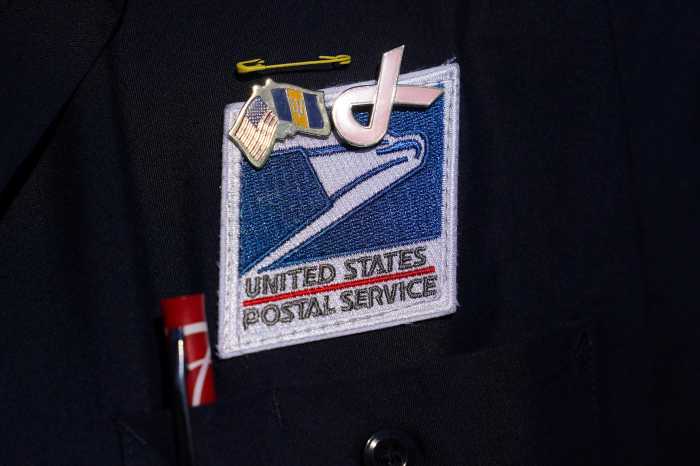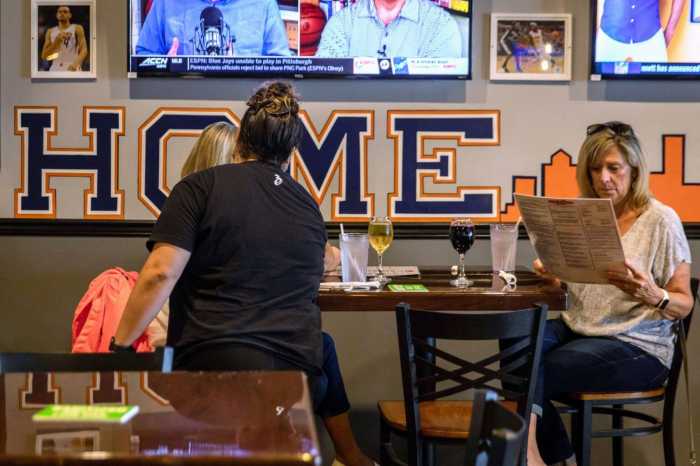The coronavirus pandemic has upended the 2020 U.S. presidential election, fueling more than 200 lawsuits in battleground states over who can vote and how.
Much of the litigation focuses on mail-in ballots, which Democrats are more likely to use, according to some polls. President Donald Trump has assailed mail-in voting, saying without evidence it could result in widespread fraud, although millions of Americans, including much of the military, have cast absentee ballots by mail for years without such problems.
Trump said on Wednesday he believed the election would end up at the U.S. Supreme Court.
Here are some closely watched lawsuits that could help determine the outcome of the Nov. 3 contest between Trump and Democratic challenger Joe Biden, who leads in national opinion polls.
PENNSYLVANIA
Pennsylvania Republicans indicated in a court filing on Tuesday that they would ask the U.S. Supreme Court to weigh in on when the battleground state must stop counting mail-in ballots.
The Pennsylvania Supreme Court ruled last Thursday that state officials dealing with a surge in mail-in ballots due to the coronavirus pandemic could accept them up to three days after the Nov. 3 election, as long as they were mailed by Election Day.
The ruling granted a request by the state Democratic Party that arose in part from concerns that postal delivery delays could disenfranchise voters.
The court also ruled that state law allows counties to collect absentee ballots using drop boxes and upheld a statute requiring poll watchers to reside in the county where they are stationed.
Pennsylvania Republicans say the state judiciary’s ruling on mail-in ballots has unlawfully intruded on the legislature’s authority to run elections.
Similar litigation over cutoff dates is unfolding in Wisconsin, Georgia and Michigan. In those states, judges extended the deadline for counting mail-in ballots until after Election Day because of the pandemic. Appeals by Republicans are either under way or expected.
Separately, Pennsylvania’s high court last week ordered officials to throw out “naked ballots” — mail ballots that arrive without inner “secrecy envelopes.”
Pennsylvania uses an unusual two-envelope system: A completed ballot goes into a “secrecy envelope” that has no identifying information, and then into a larger mailing envelope signed by the voter.
It is unclear how many “naked ballots” there will be, but one Philadelphia official has predicted 100,000 votes would not be counted because of the ruling. In 2016, Trump won Pennsylvania by about 44,000 votes.
NEW HAMPSHIRE
New Hampshire has limits on mail-in voting that state officials say are needed to deter fraud. Voters must pay for postage and cannot leave sealed ballots in a drop-off box unless a town government offers and fully staffs one. Third parties are barred from collecting and turning them in, a practice sometimes dubbed “ballot harvesting” by critics.
In an Aug. 11 lawsuit, lawyers affiliated with the Democratic Party said those rules and others “threaten to disenfranchise and unduly burden voters in these unprecedented times.” The lawsuit is pending in state court. Trump narrowly lost the state in 2016 to Democrat Hillary Clinton.
TEXAS
Texas’ Harris County, which includes Houston, has become a flashpoint for litigation over mail-in voting.
Unlike most states, Texas limits mail-in voting to those who are 65 and older, cite a disability or illness, are in jail but otherwise eligible, or are out of the county.
Harris County Clerk Chris Hollins, a Democrat, announced plans to send applications for mail-in ballots to 2.4 million registered voters.
The proposed materials made clear that not all voters were eligible to vote by mail.
Republican Party officials sued, seeking a court order halting Hollins’ plan on the grounds that it would cause confusion and induce voter fraud.
An intermediate appeals court ruled for Hollins on Friday, but that decision is on hold until the conservative-leaning Texas Supreme Court can hear an appeal.
Harris County is the third most-populous county in the country.
Polls have shown an unusually tight race in Texas, which has voted solidly for Republican presidential candidates since going for Democrat Jimmy Carter in 1976.



